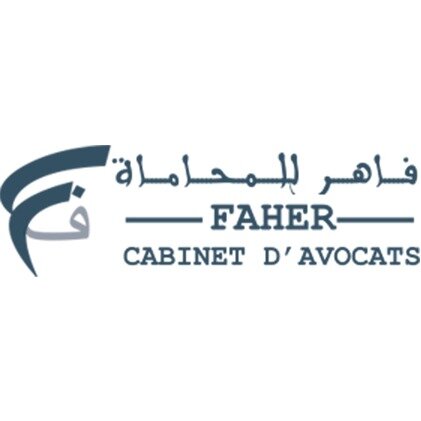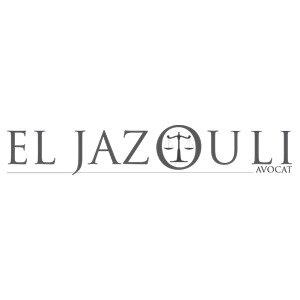Best Trusts Lawyers in Morocco
Share your needs with us, get contacted by law firms.
Free. Takes 2 min.
Or refine your search by selecting a city:
List of the best lawyers in Morocco
About Trusts Law in Morocco
Trust law in Morocco has historically been shaped more by Islamic and civil law traditions rather than the common law system where trusts are more prevalent. While the concept of trusts as known in common law jurisdictions does not play a significant role in Moroccan law, certain financial and estate planning structures may serve similar purposes. Trust-related activities in Morocco often involve the management of collective investment schemes, asset management, and fiduciary arrangements under specific legal provisions. Understanding these facets can be crucial for anyone involved in wealth management, estate planning, or charitable activities within Morocco.
Why You May Need a Lawyer
There are several scenarios in which you may find yourself in need of a legal advisor concerning trusts and similar arrangements in Morocco:
- Estate Planning: To ensure your assets are distributed according to your wishes, particularly in cross-border situations.
- Investment Management: If you are involved in managing family wealth or collective investment schemes.
- Business Structuring: When setting up a structure that might involve fiduciary responsibilities.
- Charitable Foundations: For establishing and managing philanthropic initiatives that require oversight and management akin to trusts.
- Dispute Resolution: To handle conflicts regarding the administration or terms of fiduciary arrangements.
Local Laws Overview
While the specific concept of a common law trust does not integrate directly into Moroccan legal system, certain areas of Moroccan law address fiduciary duties in various contexts. Key aspects include:
- Civil Code: Governs most private legal relationships and includes provisions that may overlap with fiduciary responsibilities.
- Family Law: Important for understanding inheritance and property distribution issues.
- Circulars on Financial Institutions: Financial institutions may be governed by special regulations in terms of client asset management.
While Moroccan law requires a nuanced approach, professionals familiar with civil and commercial codes can often navigate the legal landscape to achieve similar objectives to those provided by trusts.
Frequently Asked Questions
What is a trust in the Moroccan context?
Although not common, some instruments such as Waqf or foundations may serve purposes akin to a trust.
How can trusts be used for estate planning in Morocco?
Trusts themselves are not used, but estate planning may be achieved through wills, life insurance, and family agreements.
Are there tax implications for setting up a trust-like structure?
Yes, any structure intending to carry similar benefits may still be subject to Moroccan tax law, requiring local taxation advice.
Can foreign trusts own property in Morocco?
Ownership by foreign entities is subject to Moroccan laws which may impose restrictions or additional requirements.
How can I ensure my wishes are respected in asset distribution?
Engage a legal advisor to draft clear wills and agreements, harmonizing with Moroccan inheritance laws.
Are there legal differences between trusts and Waqf?
Yes, Waqf is traditionally a religious charitable endowment and operates under different legal principles than a trust.
Do I need a lawyer to set up a charitable fund?
While not mandatory, a lawyer can help navigate the regulatory landscape and ensure compliance with local laws.
What happens if there’s a dispute over a trust-like arrangement?
Such disputes would be resolved through the Moroccan judicial or arbitration system, often needing legal representation.
What fiduciary duties exist under Moroccan law?
Fiduciary duties can arise from roles within family, partnership, or agency relationships under civil and commercial laws.
Can Moroccan nationals create or benefit from foreign trusts?
Yes, but they must consider the complex legal and tax implications both domestically and abroad.
Additional Resources
Those seeking more information or needing assistance can consider the following resources:
- Moroccan Bar Association for lawyer referrals and guidance.
- Ministry of Justice for laws and official guidelines pertaining to civil matters.
- Consult local universities or law faculties, which sometimes offer legal clinics.
Next Steps
If you need legal assistance with trust-like arrangements in Morocco, consider these steps:
- Research and identify lawyers or legal firms with expertise in estate and financial planning.
- Schedule consultations to discuss your specific needs and understand potential legal paths.
- Gather pertinent documentation related to assets, family agreements, and any existing legal structures.
- Work with your legal advisor to develop and implement a plan that aligns with Moroccan laws and your personal goals.
Lawzana helps you find the best lawyers and law firms in Morocco through a curated and pre-screened list of qualified legal professionals. Our platform offers rankings and detailed profiles of attorneys and law firms, allowing you to compare based on practice areas, including Trusts, experience, and client feedback.
Each profile includes a description of the firm's areas of practice, client reviews, team members and partners, year of establishment, spoken languages, office locations, contact information, social media presence, and any published articles or resources. Most firms on our platform speak English and are experienced in both local and international legal matters.
Get a quote from top-rated law firms in Morocco — quickly, securely, and without unnecessary hassle.
Disclaimer:
The information provided on this page is for general informational purposes only and does not constitute legal advice. While we strive to ensure the accuracy and relevance of the content, legal information may change over time, and interpretations of the law can vary. You should always consult with a qualified legal professional for advice specific to your situation.
We disclaim all liability for actions taken or not taken based on the content of this page. If you believe any information is incorrect or outdated, please contact us, and we will review and update it where appropriate.
Browse trusts law firms by city in Morocco
Refine your search by selecting a city.












